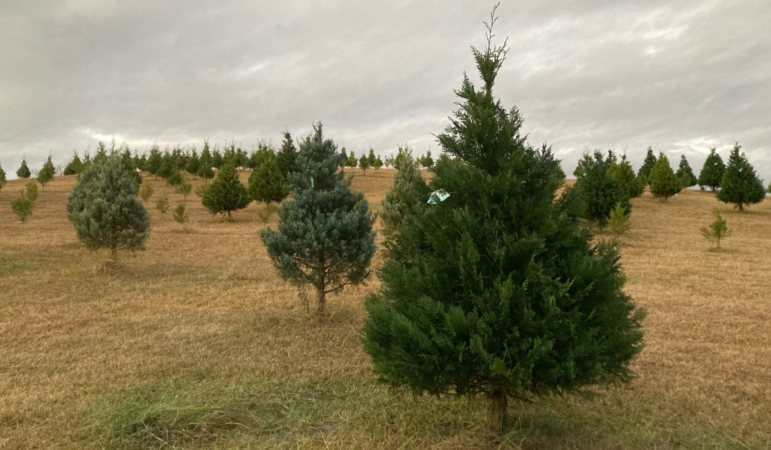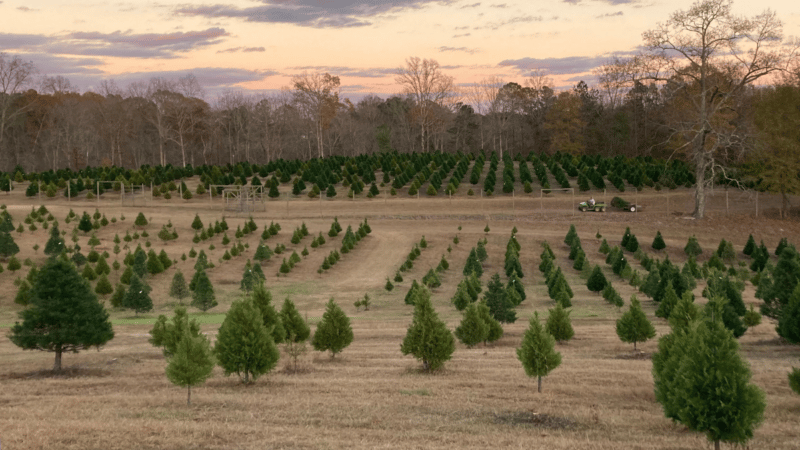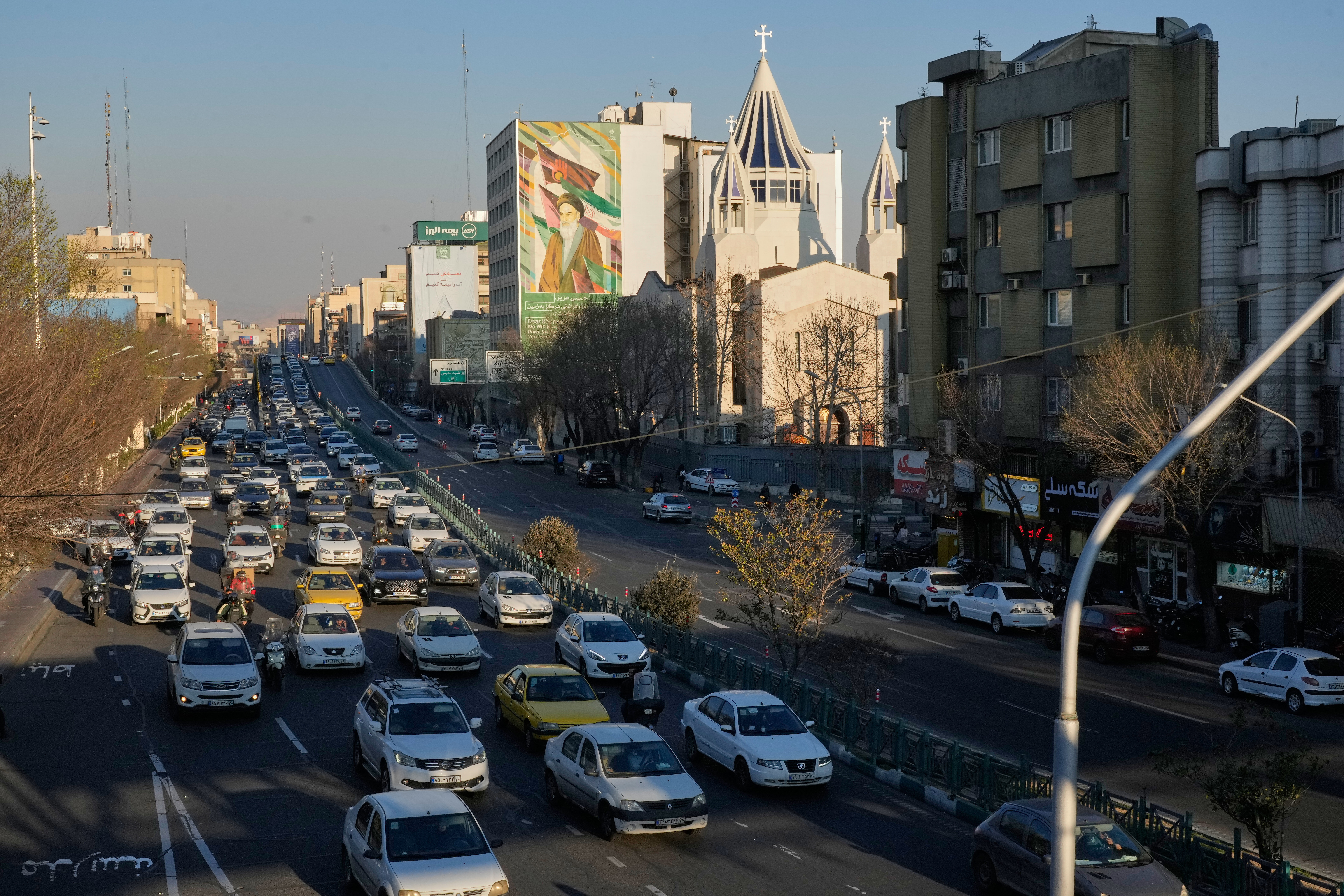The story of Alabama’s favorite homegrown Christmas tree
This story is part of a monthly series called Outdoor Connections, which features stories that explore the biodiversity of Alabama and how we depend on it.
In the 1990s, Carolyn Beavers and her husband were discussing ways to stay busy and make a little extra money after retirement.
“I looked out my kitchen window and I said, ‘We could plant Christmas trees,’” Beavers recalled.
The couple bought about 30 acres of family land near Trafford, north of Birmingham, and opened Beavers Christmas Tree Farm. But Beavers said they “knew nothing” about growing Christmas trees.
Well-known holiday favorites like the Frasier fir and the white spruce don’t thrive in Alabama conditions. Instead, most farmers in the Deep South depend on the Leyland cypress for annual Christmas tree production.
The popularity of the non-native evergreen surprised Beavers.
“When I first saw (the Leyland cypress), I told my husband, ‘Nobody is gonna buy that for a Christmas tree.’ But was I wrong,” Beavers said.
Bushy with a deep green color and a pyramid shape, the Leyland cypress shares many Christmas tree qualities. But it doesn’t have the piney Christmas tree scent, and it has softer, more flexible branches that might not sustain heavier ornaments.
The tree is most commonly used for landscaping, according to Jeremy Pickens, horticulture expert with Auburn University.
“But it made for a good Christmas tree because of its shape and it grows really fast,” Pickens said.
Like many landscape plants, the Leyland cypress isn’t a naturally-occurring species. It was reportedly created by accident, a product of British gardening experiments in the late 1800s.
English planters grew two tree species near one another that wouldn’t normally share the same soil. To the gardeners’ surprise, the trees, a Monterey cypress and an Alaskan cedar, cross bred to create the Leyland cypress.

Because it can’t reproduce on its own, planters continue to grow the tree in nurseries and sell seedlings to farmers like Beavers.
After years of running a farm, Beavers has come to love the Leyland cypress.
“It just grows uniform all around,” she said. “It doesn’t matter where it’s planted.”
This holiday season, Beavers and her husband sold 1,335 trees, mostly Leyland cypress. She said they could sell more, but they limit sales to ensure next year’s supply.
Do you have an idea worth featuring as part of our Outdoor Connections series? Email [email protected].
U.S. and Iran to hold a third round of nuclear talks in Geneva
Iran and the United States prepared to meet Thursday in Geneva for nuclear negotiations, as America has gathered a fleet of aircraft and warships to the Middle East to pressure Tehran into a deal.
FIFA’s Infantino confident Mexico can co-host World Cup despite cartel violence
FIFA President Gianni Infantino says he has "complete confidence" in Mexico as a World Cup co-host despite days of cartel violence in the country that has left at least 70 people dead.
Supreme Court appears split in tax foreclosure case
At issue is whether a county can seize homeowners' residence for unpaid property taxes and sell the house at auction for less than the homeowners would get if they put their home on the market themselves.
Top House Dem wants Justice Department to explain missing Trump-related Epstein files
After NPR reporting revealed dozens of pages of Epstein files related to President Trump appear to be missing from the public record, a top House Democrat wants to know why.
ICE won’t be at polling places this year, a Trump DHS official promises
In a call with top state voting officials, a Department of Homeland Security official stated unequivocally that immigration agents would not be patrolling polling places during this year's midterms.
Cubans from US killed after speedboat opens fire on island’s troops, Havana says
Cuba says the 10 passengers on a boat that opened fire on its soldiers were armed Cubans living in the U.S. who were trying to infiltrate the island and unleash terrorism. Secretary of State Marco Rubio says the U.S. is gathering its own information.







